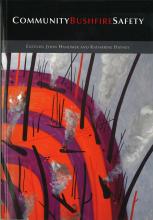Bushfire Economic Costs
Accurate numbers on the economic, social and environmental costs of bushfires are hard to identify. Estimates often ignore economic principles and are of limited value in dealing with governments that increasingly require fire agencies to justify their actions with economic and other quantitative indicators. Much work on bushfire economics is being conducted overseas, especially in the US, although much of this work concerns forestry rather than urban interface issues. Considerable loss assessment work has also been conducted for other hazards like flooding. This Bushfire CRC project drew on that work where appropriate, and built collaboration with experienced overseas fire economists.
The project was led by Professor John Handmer at RMIT University. Through a number of journal articles and book chapters the project expanded the scope of what is normally included in bushfire loss assessment, to ensure that coverage is comprehensive, taking into account the costs of arson, the impact of error and uncertainties, carbon accounting, additional impacts of mega events, volunteers, and intangible losses.
One of the first priorities was to establish the cost effectiveness of aerial fire fighting through a joint project with Program A. Professor Handmer and colleague Gaminda Ganewatta assessed the relative economic merits of different types of fixed-wing aircraft and helicopters for suppression tasks conducted with and without various combinations of ground resources.
A guide to estimating non-market values for improved fire management has been developed targeted at government and other organisations for creating business cases.
Related News
(sorry, no news items for this event)




